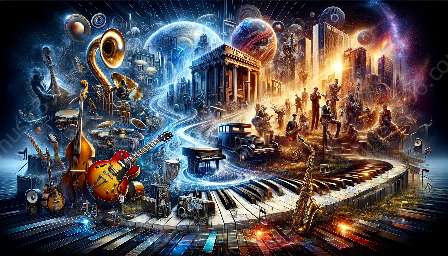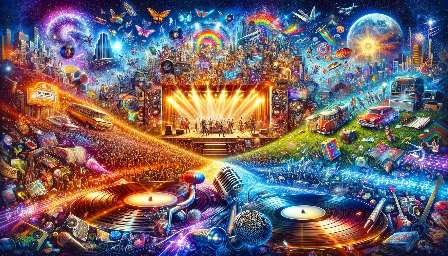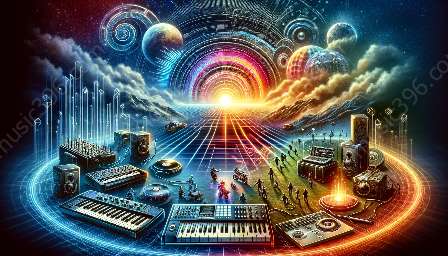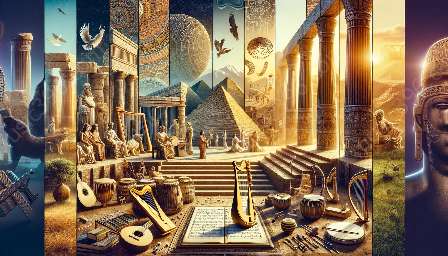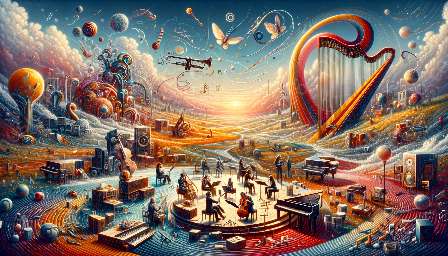Electronic music has profoundly impacted the integration of traditional and contemporary music practices, shaping the soundscape of the modern music industry. Understanding the history of electronic music is essential to comprehend its influence on musical evolution.
History of Electronic Music
The history of electronic music dates back to the late 19th century, with the invention of electronic musical instruments such as the Telharmonium. However, the 20th century saw significant advancements in electronic music, particularly with the development of the synthesizer, magnetic tape technology, and the emergence of electronic music pioneers like Karlheinz Stockhausen and Pierre Schaeffer. These innovations laid the foundation for the electronic music revolution that ensued in the latter half of the 20th century.
Influence on Musical Evolution
Electronic music has played a pivotal role in bridging the gap between traditional and contemporary music practices. By embracing technological advancements, electronic music has provided a platform for the fusion of diverse musical genres and styles. The integration of electronic elements into traditional music has breathed new life into age-old practices, while also pushing contemporary music to explore innovative sonic landscapes.
Exploring Sonic Possibilities
The advent of electronic music opened up boundless sonic possibilities for musicians and producers. By utilizing synthesizers, drum machines, and digital audio workstations, artists have been able to manipulate sound in ways previously unimaginable. This has led to the creation of entirely new musical genres and sub-genres, as well as the reimagining of traditional musical forms through electronic experimentation.
Collaborations and Cross-Pollination
Electronic music has facilitated collaborations and cross-pollination between artists from different musical backgrounds. Traditional musicians have found common ground with electronic producers, integrating elements of electronic music into their compositions. Similarly, electronic musicians have drawn inspiration from traditional musical practices, enriching their soundscapes with cultural and historical references.
Integration of Traditional and Contemporary Music Practices
The integration of electronic music has blurred the lines between traditional and contemporary music practices, fostering a dynamic environment of musical exploration and innovation. Traditional instruments now coexist harmoniously with electronic counterparts, creating hybrid ensembles that embody the synergy of past and present musical traditions. Furthermore, the accessibility of electronic music production tools has empowered musicians to incorporate electronic elements into their compositions, democratizing the process of musical creation.
Musical Diversity and Global Influence
Electronic music has transcended geographical and cultural boundaries, influencing musical practices around the world. By embracing electronic sounds and production techniques, artists from diverse cultural backgrounds have been able to express their unique musical identities while contributing to the global tapestry of electronic music. This cross-cultural exchange has enriched the musical landscape, leading to the emergence of hybrid genres that seamlessly blend traditional and electronic elements.
Revolutionizing Live Performances
Live performances have been revolutionized by the integration of electronic music practices. Traditional orchestras and bands now incorporate electronic instruments and effects, elevating their performances to new dimensions. Moreover, electronic music festivals and events have become platforms for showcasing innovative sonic experiences, bringing together traditional and contemporary music enthusiasts in celebration of musical diversity.
Conclusion
Electronic music has left an indelible mark on the integration of traditional and contemporary music practices, fostering a harmonious coexistence of old and new musical expressions. As technological advancements continue to shape the music industry, the influence of electronic music will undoubtedly inspire further innovations and collaborations, perpetuating the evolution of musical practices.






